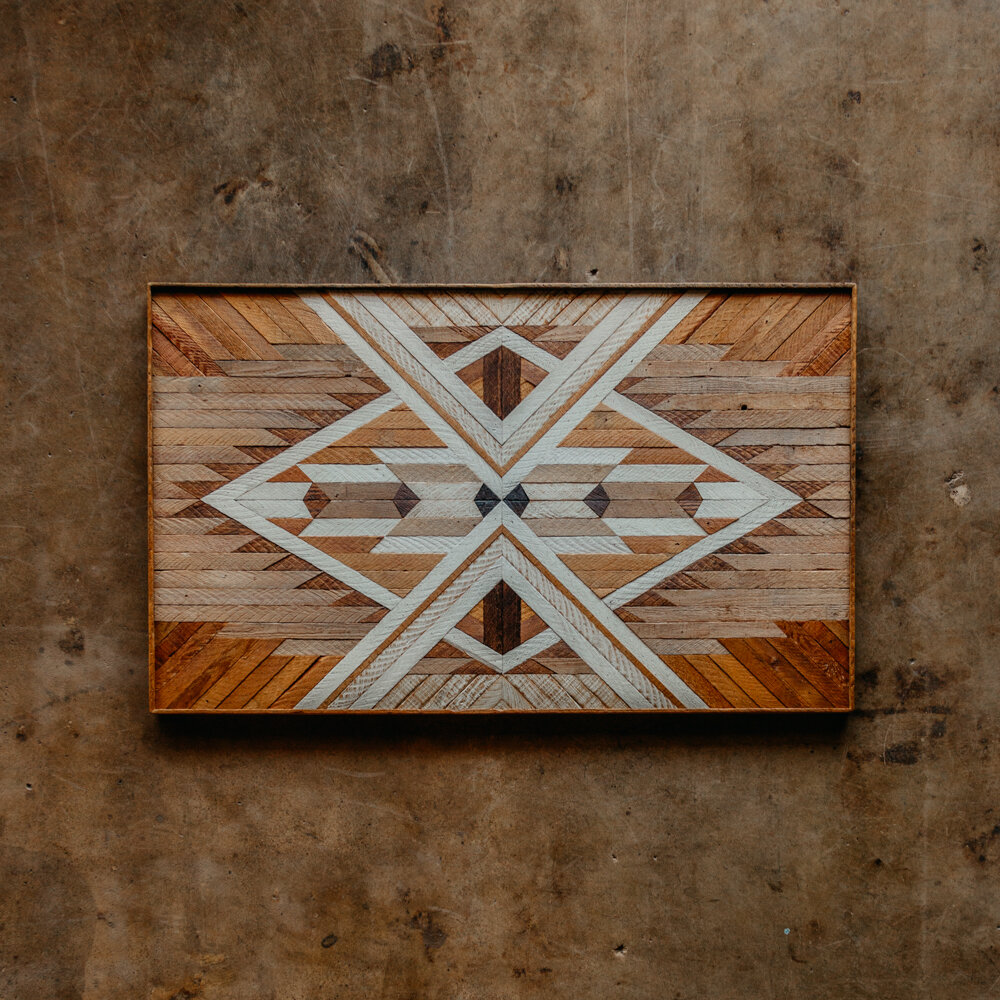1767 Designs
Bio
“It deserved a better fate than to be thrown away,” says Patrick Hayes, founder of 1767 Designs, a small workshop off of East Nashville’s bustling Gallatin Avenue where Hayes and a dedicated team rescue wood materials from historic homes, cast aside by the city’s development boom, and craft them into irreplaceable pieces of art before they’ve had a chance to end up in a landfill. “There used to be that real special attention to detail and care that just doesn’t exist anymore,” says Hayes. “I moved to Nashville and saw what was happening with all of the development that was going on and noticed how many of the houses [that were being torn down] were these beautiful, quality, craftsman houses.” It was then that Hayes pressed pause on pursuing a career in Nashville’s music industry and turned his creative attention to the past and how he could preserve it moving forward. Keeping these particles of history out of the dumpster; that was—and continues to be—the end game.
“For me, it was this weird Indiana Jones-ish style treasure hunt,” says Hayes of the early days of 1767 when he would venture into old homes slated for demolition, often sold full of left or forgotten possessions. “It was like the woodworking and the art part of it was a byproduct of me selfishly wanting to dig around in these old houses and find these old relics from the past.” In part, those finds inspired the design of 1767’s products as a whole. That thread of old things runs through the company’s aesthetic. “I have a weird nostalgia for the way things were, even though I wasn’t around when they were that way, if that makes sense” Hayes jokes, citing art-deco architecture and the southwestern design he discovered on childhood vacations and road trips from his Southern California home-base. Anything from a blanket or a basket to towering mid-century skyscrapers or squatty craftsman houses have found their way into being distilled into one of 1767’s creations.
As for more modern inspiration, Hayes and his company are focused on the environmental impact, or lack thereof, of their business. From the start, the idea of preserving materials from demolition sites not only meant remembering a home and its history, but also keeping a large portion of waste from being hauled away in a dump truck. Nowadays, an entire team from 1767 will go into a home, demo, and salvage the wooden lath behind old-time plaster walls themselves before returning to the workshop to remove nails and file each piece away to be cut, assembled, and framed into geometric patterns as large as six feet across, in some cases. Now more than seventy-five houses into this project, Hayes and 1767 still handwrite the address of each torn-down home and the year it was built right on the back of each product.
Named after the 1767 miles, as the crow flies, between Hayes’ family home in California and his Tennessee apartment in which the company was dreamed up, 1767 has already found quite a bit of traction on merit alone and their art has grown well beyond their workshop with partnerships with retailers like Anthropologie, Pottery Barn, and Williams and Sonoma, as well as contracts with Airbnb, WeWork, American Apparel, and Google.
Select Press
Forbes - “Why Reinvention, Not Change, Is The New Game In Town”
Garden & Gun - “Turning Doomed Old Houses Into Eye-Catching Art”
The Tennessean - “East Nashville company shapes art from remains of city's demolished historic homes”
Nashville Business Journal - “Small business owner: Support small businesses to preserve the soul of Nashville”
Aspire Metro - “Ecologically And Socially Conscious Gifts - ASPIRE Gift Guide 2020”









